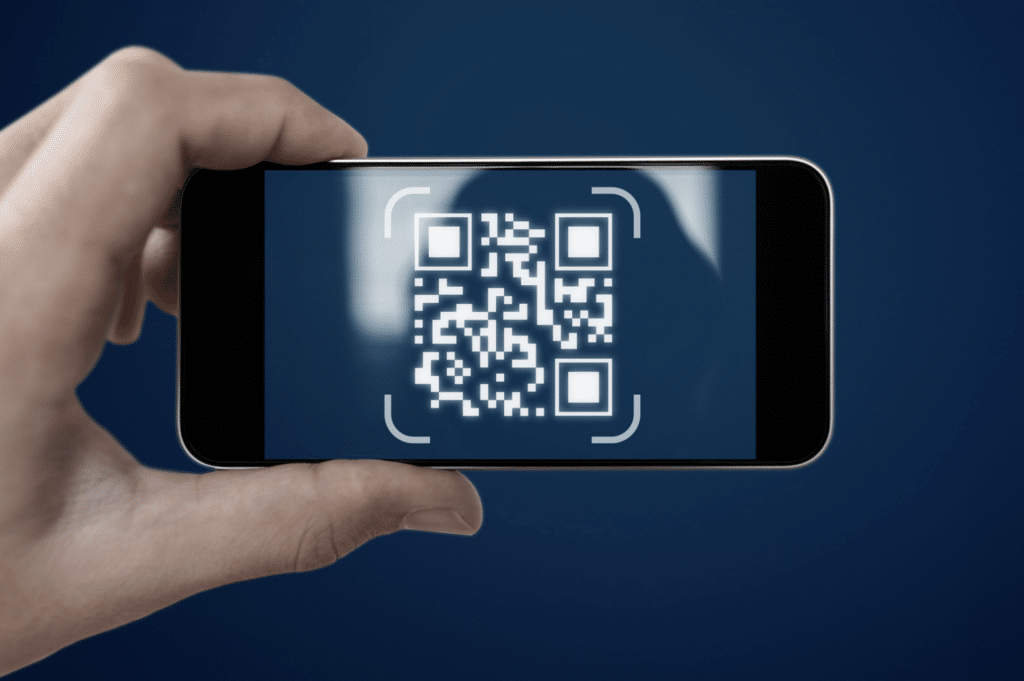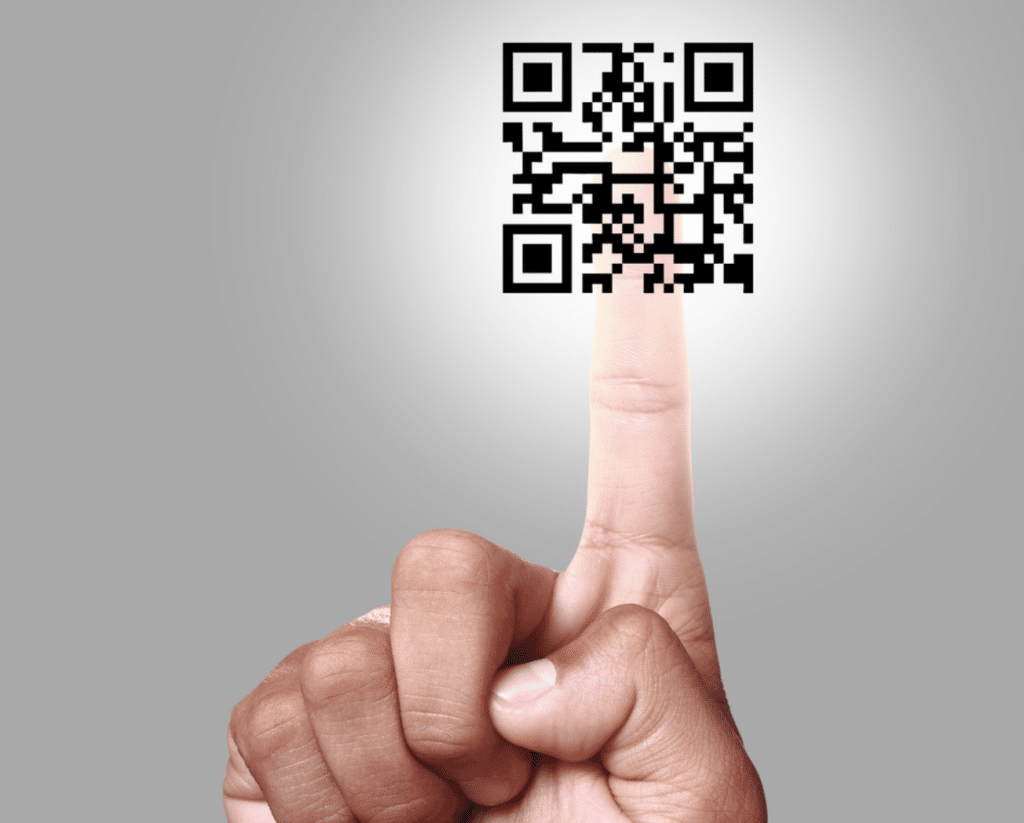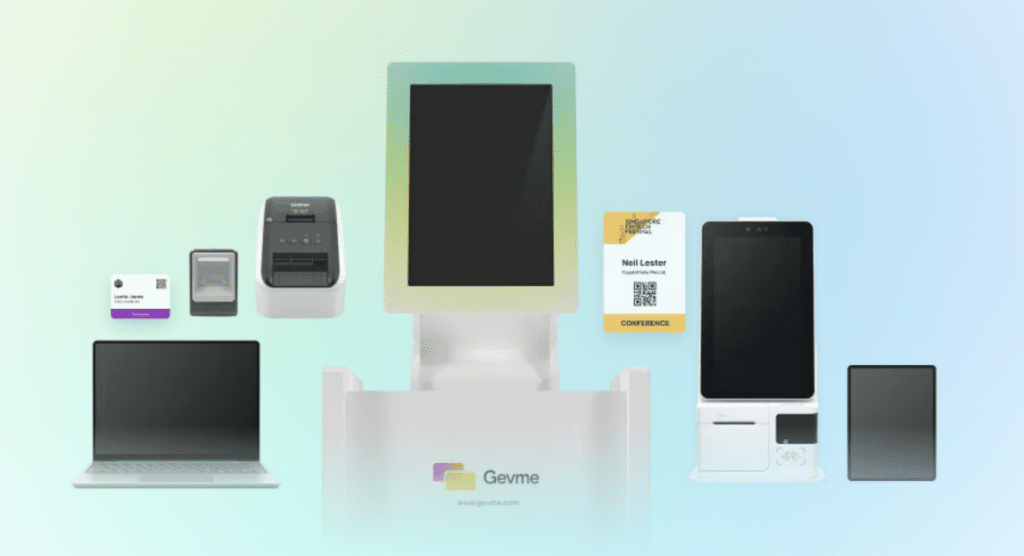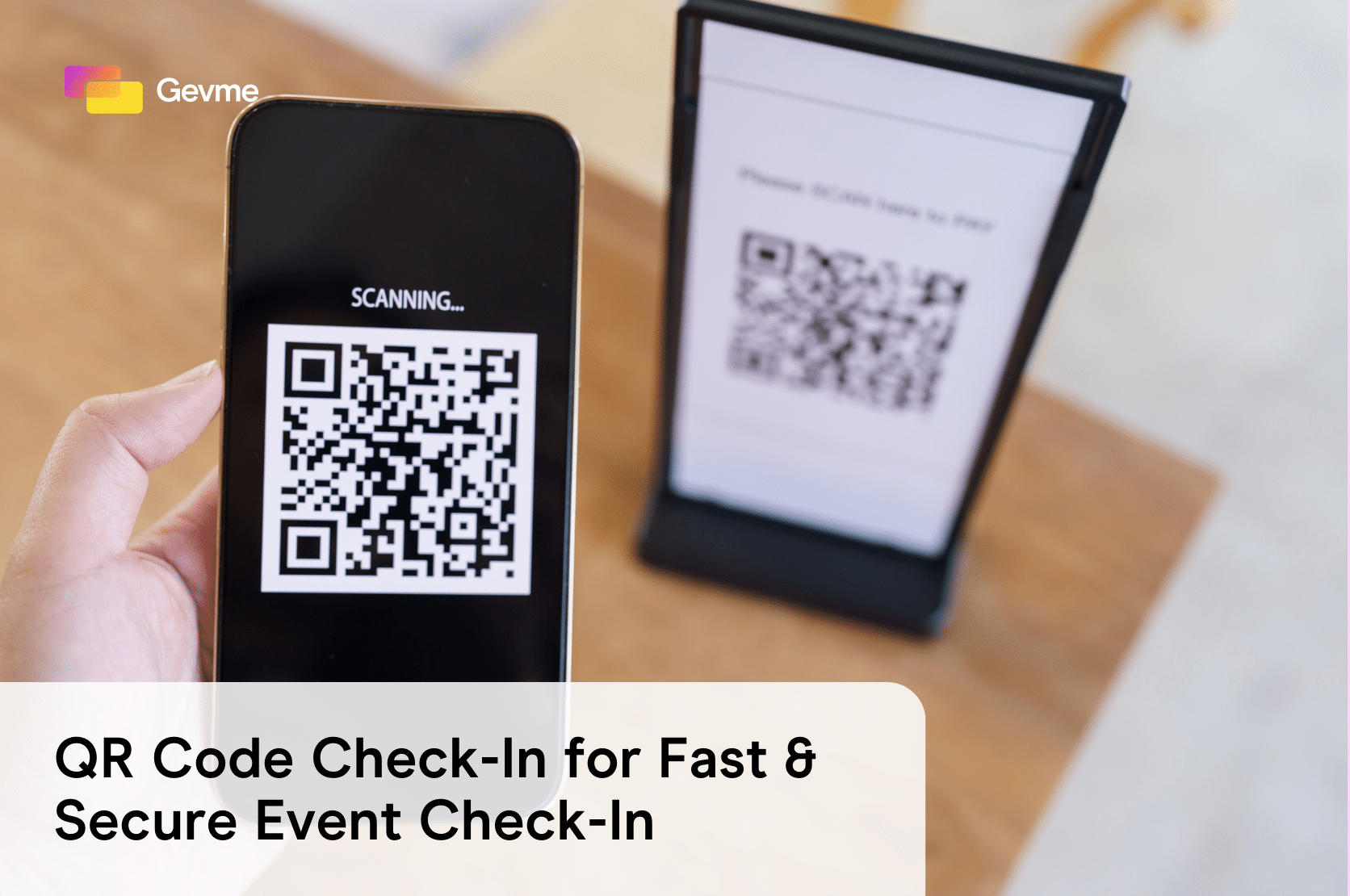The advent of QR code event check-in has revolutionized the entry process at events, offering a fast, secure, and contactless method to manage attendee arrivals. This technology, embedded within the event industry’s shift towards digital solutions, enhances the check-in experience by significantly reducing wait times and streamlining entry logistics. QR code event check-in not only simplifies the process for attendees but also provides organizers with real-time data tracking and analysis, ensuring a smooth and enjoyable start to the event experience.
As we delve into the world of QR code event check-in, it’s clear that this technology is pivotal in modernizing event management practices, aligning with the growing demand for seamless, tech-driven solutions in the event sector.

The Rise of QR Codes in Event Management
QR codes have surged in popularity within event management as a versatile tool for facilitating seamless check-ins and enhancing attendee experiences. Their rise can be attributed to several key factors:
- Ease of Use: QR codes streamline the check-in process as they can be scanned quickly and effortlessly with a smartphone camera, reducing the need for manual entry and decreasing the potential for errors. This ease of use extends to both attendees, who can check in with a simple scan, and organizers, who can manage entry with minimal equipment.
- Cost-Effective Solution: Producing and distributing QR codes is significantly cheaper than traditional methods involving physical tickets or RFID systems. They can be generated digitally and sent via email or mobile apps, eliminating printing and mailing costs and reducing the event’s overall budget.
- Rapid Check-In Process: The use of QR codes for event check-in significantly speeds up the entry process, allowing attendees to access the event faster and reducing congestion at entry points. This quick processing capability is essential for handling large crowds and creating a smooth start to the event.
- Enhanced Security: QR codes enhance security by encrypting attendee data, which minimizes the risk of unauthorized access and fraud. They can be dynamically generated, meaning each code is unique and can be invalidated after use, ensuring a secure check-in process.
- Integration with Mobile Technology: The proliferation of smartphones has made QR codes particularly relevant. They seamlessly integrate with event apps and digital tickets, providing a unified and modern experience for attendees, from receiving the ticket to entering the event.
- Eco-Friendly: Adopting QR codes supports sustainability efforts by reducing the need for paper-based tickets and materials. This shift not only lowers the event’s carbon footprint but also aligns with the growing environmental consciousness among consumers and businesses alike.
- Data Collection and Analysis: Utilizing QR codes enables organizers to capture valuable data in real-time, such as attendee arrival times, peak traffic periods, and entry point flow. This information is crucial for improving future events, allowing for data-driven decision-making and tailored marketing strategies.

How QR Codes Enhance Event Check-In
QR codes event check-in revolutionizes event check-in processes, providing strategic and operational benefits that streamline entry and enhance the attendee experience:
- Speed and Efficiency: QR codes significantly expedite the entry process, allowing attendees to check in within seconds. This rapid processing capability is crucial for managing large crowds, ensuring that attendees can enter the venue without unnecessary delays, thereby enhancing their overall event experience and reducing any potential frustration associated with long waiting periods.
- Contactless Entry: Offering a contactless check-in option, QR codes are ideal for maintaining health and safety standards, especially in light of health concerns such as the COVID-19 pandemic. This system minimizes physical interaction between staff and attendees, reducing the risk of transmitting infections and providing peace of mind for everyone involved.
- Accurate Data Capture: QR code scanning at entry points ensures the accurate and efficient capture of attendee data, which is essential for managing event logistics and security. This accuracy is paramount for real-time attendee tracking, enabling organizers to monitor attendance levels and adapt to any unforeseen changes in participant flow.
- Ease of Distribution and Access: Distributing QR codes via digital means, such as email or mobile apps, ensures that attendees have easy access to their event credentials. This convenience eliminates common issues associated with physical tickets, such as loss or damage, and facilitates a smoother check-in experience.
- Integration with Event Management Systems: QR codes can be integrated seamlessly with comprehensive event management systems, allowing for synchronized data flow and real-time insights. This integration enables organizers to manage attendee information, customize event experiences, and analyze event dynamics efficiently.
- Enhanced Security Features: The security of QR codes is bolstered through encryption and time-stamping, which helps prevent ticket duplication and fraud. These features ensure that only authorized attendees can access the event, maintaining the integrity of the entry process.
- Environmental Benefits: Adopting QR codes for event check-in aligns with sustainable event practices by significantly reducing the need for paper-based materials. This reduction not only decreases waste but also contributes to the broader environmental goals of reducing resource consumption and minimizing the carbon footprint of events.
Gevme’s QR Code Event Check-In Solutions
Gevme provides sophisticated QR code event check-in solutions, designed to enhance the attendee experience through fast and efficient processing. Here’s how Gevme’s system stands out:
- Seamless Integration: Gevme’s QR code event check-in is fully integrated with its event management platform, ensuring a cohesive experience from registration to event entry. This integration allows for real-time data syncing and management.
- Customizable Kiosks: Featuring kiosks like the Model S and Model T, Gevme offers hardware that is not only eco-friendly but also equipped with advanced features like built-in printers and QR code scanners, facilitating a quick and sustainable check-in process.

- Flexible and Efficient: Gevme’s check-in solutions are adaptable to various event formats and sizes, offering a range of configurations from standalone kiosks to fully integrated check-in systems. This flexibility ensures that the check-in process is efficient, regardless of the event scale, reducing bottlenecks and enhancing attendee flow.
- Data Management and Analytics: Utilizing QR codes for event check-in allows Gevme to capture detailed attendee data, which can be analyzed to gain insights into attendee behavior and preferences. This data-driven approach supports targeted marketing efforts and informed decision-making for future event planning.
- User-Friendly Experience: Gevme prioritizes the user experience, offering an intuitive check-in process for attendees. The quick and easy scanning of QR codes, coupled with immediate badge printing, streamlines entry, reducing wait times and improving the overall attendee experience.
- Sustainable Practices: By minimizing the use of paper and other consumables, Gevme’s QR code event check-in system supports sustainable event practices. This approach aligns with the growing trend of environmental responsibility in the event industry, reducing waste and the carbon footprint of events.
- Robust Support: Gevme ensures that event organizers are well-equipped to manage the check-in process by providing comprehensive support and training. This includes assistance with system setup, troubleshooting during the event, and post-event analytics and reporting.
Strategies for Implementing QR Code Event Check-In
Implementing QR code event check-in at events requires thoughtful planning and execution to ensure efficiency and a positive attendee experience. Here’s how to optimize the process:
- Pre-Event Communication: Effectively communicate with attendees about the QR code event check-in system well before the event. This can include detailed instructions in pre-event emails or on the event website, explaining how to access and use their QR code, and what to do upon arrival, ensuring they are prepared and reducing confusion or delays at the event.
- Efficient Setup: Organize the check-in area to facilitate a quick and smooth flow of attendees. This involves arranging scanning stations strategically, providing clear signage, and ensuring that paths are well-defined to guide attendees through the check-in process efficiently, preventing bottlenecks and overcrowding.
- Staff Training: Thoroughly train all staff and volunteers on the QR code system to ensure they can manage the technology confidently and assist attendees effectively. This training should cover how to use the scanning devices, troubleshoot common issues, and provide quick solutions to keep the entry process moving smoothly.
- Technology Integration: Seamlessly integrate the QR code system with other event technology platforms, such as attendee tracking, registration, and event apps. This integration allows for real-time data sharing and management, enhancing the overall efficiency of the event operations.
- Network and Hardware Reliability: Ensure that all technological equipment, including scanners and mobile devices, are fully functional and that there is a stable network connection. Conduct a comprehensive check of the hardware and network prior to the event to prevent any technical failures that could disrupt the check-in process.
- Testing and Troubleshooting: Before the event day, rigorously test the QR code event check-in system under various scenarios to identify and address potential problems. This should include testing with different types of devices and under different network conditions to ensure reliability and swift troubleshooting during the event.
Data and Insights: The Value Behind QR Code Event Check-In
QR code event check-in systems offer more than just streamlined entry processes; they provide a treasure trove of data and insights that can significantly benefit event organizers:
- Real-Time Attendance Tracking: Utilizing QR codes allows for precise, real-time tracking of attendee entry and movements within the event. This capability not only aids in managing crowd density and logistics but also provides immediate data on attendance trends, helping organizers optimize session scheduling and resource allocation.
- Behavioural Insights: The analysis of scanning data from QR codes reveals patterns in attendee preferences, such as popular sessions, peak activity times, and preferred event features. These insights are invaluable for tailoring event content and layout to better suit attendee interests, enhancing the overall event experience.
- Enhanced Security and Control: QR code systems contribute to a secure event environment by enabling detailed tracking of attendee locations and ensuring that access to various event zones is controlled and monitored. This level of oversight helps maintain safety and order, particularly in large-scale events or venues with restricted areas.
- Post-Event Analysis: After the event, the comprehensive data collected via QR codes can be analyzed to evaluate various aspects of the event’s success, including attendee satisfaction, engagement levels, and logistical efficiency. This post-event analysis is crucial for understanding the event’s impact and identifying areas for future improvements.
- Personalized Marketing and Follow-Up: The information garnered from QR code interactions aids in creating personalized post-event communication strategies. By understanding attendee behaviors and preferences, organizers can craft targeted follow-up messages, offers, and content, fostering continued engagement and building lasting relationships.
- Improved Future Event Planning: The detailed insights obtained from QR code event check-in data are instrumental in planning future events. They allow organizers to make data-driven decisions regarding event format, marketing strategies, and attendee engagement initiatives, ultimately leading to more successful and resonant events.
- Cost-Efficiency and ROI Measurement: The operational efficiency gained through QR code event check-in systems often translates to cost savings by reducing the need for physical materials and manual processing. Additionally, the rich data insights provided by QR codes can be used to measure the return on investment, demonstrating the financial and strategic value of the event.

Sustainability and Efficiency: QR Codes’ Environmental Impact
Embracing QR codes for event check-in aligns with sustainable event practices, offering an eco-friendly alternative to traditional methods:
- Reduced Waste: QR codes virtually eliminate the need for physical tickets and printed materials, significantly reducing paper waste and the environmental toll associated with production and disposal.
- Lower Carbon Footprint: By minimizing the reliance on physical materials, QR codes contribute to a decrease in carbon emissions related to transport and manufacturing processes.
- Energy Efficiency: Digital check-in systems, powered by QR codes, typically consume less energy than traditional systems, contributing to overall energy savings for the event.
- Resource Conservation: Transitioning to a QR code-based check-in system conserves natural resources by reducing the demand for paper and ink used in printing.
- Recycling and Upcycling Opportunities: While QR codes themselves are digital, their integration into events often encourages the use of sustainable materials and recycling opportunities for any associated physical elements, such as badges or wristbands.
- Encouraging Sustainable Behaviour: The use of QR codes can also encourage attendees to adopt sustainable habits, such as using digital tickets and engaging with event materials through their devices, further reducing the environmental impact.
Conclusion
The integration of QR codes into event check-in processes signifies a transformative shift in the event industry, merging technological innovation with operational efficiency and sustainability. As we’ve explored, QR codes not only streamline the check-in experience, making it faster and more enjoyable for attendees, but also offer a wealth of data and insights for organizers, enhancing event planning and execution.
The adoption of QR codes for event check-in aligns with eco-friendly practices, reducing waste and supporting sustainability goals. Looking forward, the potential for QR codes in events is vast, with emerging technologies set to expand their functionality and impact. As event professionals continue to leverage QR codes, they will undoubtedly play a crucial role in shaping the future of event management, making events more accessible, secure, and environmentally responsible.








